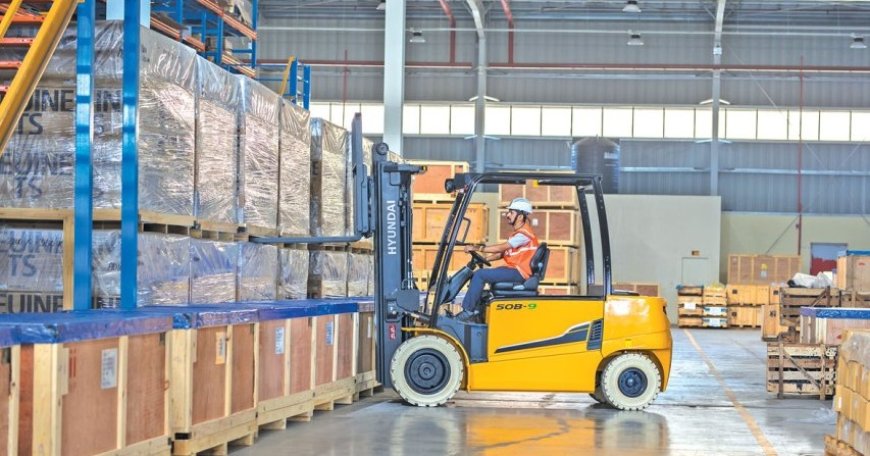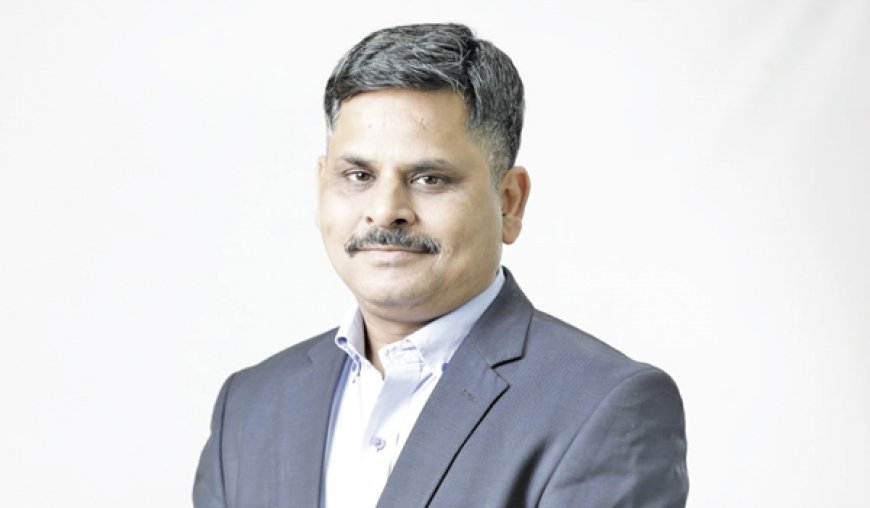Unveiling Challenges and Opportunities for GROWTH in the Material Handling Industry

In the dynamic landscape of Material Handling Industry, each innovation presents both challenges and opportunities. From maintenance to skill gaps, budget constraints, and regulatory hurdles, our journey is rich with obstacles. Yet, by prioritizing equipment upkeep, workforce training, and technological integration, we pave the way for a sustainable and efficient future. Hyundai is committed to leading this change by bridging the gaps, seizing opportunities, and moving the industry towards success.”
Step into the ever-evolving world of Material Handling Industry, where each innovation brings its own set of challenges and opportunities for growth. In this discourse, we’re diving into the real issues faced during the upgrade of Material Handling Equipments in India. From areas of improvement in equipment maintenance to the shortage of skilled workers to comfort of operators, there are many issues to be addressed. But these challenges are not just isolated problems – they’re reflections of broader issues that affect businesses and workers alike.
Key Challenges in Advancing Material Handling Industries in India
As we navigate this transition, it’s essential to recognize the complexity of the task at hand. We need to prioritize the upkeep of our equipment and the training and well-being of our workforce. By addressing these challenges, we can create much more efficient and sustainable future in Material Handling Industry.
The challenges in advancing Material Handling Equipment in India stem from several key factors, including:
Lack of Skills: With advancing technology, there’s a growing need for workers trained in the latest Material Handling technologies. However, there’s often a significant gap between existing worker skills and what’s needed to efficiently operate modern machinery. This gap arises from inadequate training programs, rapid technological changes, and a shortage of customer education focused on industry needs.
Lack of Investment in Maintenance: Companies often do not adequately invest capital in regular maintenance and upkeep, perhaps due to budget constraints or prioritizing short-term profits over long-term efficiency and safety. This results in more frequent breakdowns and failures, ultimately reducing the lifespan of the equipment and also causing operations and productivity loss.
Regulatory and Infrastructure Challenges: Some regions lack adequate regulatory frameworks to enforce safety and maintenance standards. Additionally, existing infrastructure may not support modern equipment optimally, necessitating costly modifications or upgrades.
Initiatives Taken by HD Hyundai to Tackle These Obstacles
Lower Investment in maintenance: HD Hyundai prioritizes customer satisfaction by focusing on lowering investment in maintenance. This is achieved through several strategies: offering spare parts at a lower cost, ensuring easy serviceability, designing equipment for longer durability, and enhancing productivity with fewer breakdowns. These factors contribute to a significantly reduced total cost of ownership. Additionally, Hyundai advocates for prudent maintenance investment to prevent breakdowns and ensure operational reliability, further supporting customer satisfaction.
Competitive Edge: Through the strategic integration of cutting-edge technology and adherence to industry best practices, companies can achieve operational excellence in material handling. Hyundai’s parent company from Korea leverages the latest designs and technologies, while Hyundai itself utilizes its own R&D center equipped with simulation facilities. This optimization results in reduced downtime and enhanced productivity, leading to significant cost efficiencies. Hyundai MHE is recognized for its high equipment uptime, further enhancing its reputation for reliable material handling solutions. Consequently, organizations can strengthen their competitive advantage and ensure long-term viability and success.
Safety and Performance Focus: HD Hyundai ensures its equipment adheres to stringent international safety standards and regulations by emphasizing both safety and suitability. Hyundai aims to provide equipment that not only meets the highest safety standards but also delivers exceptional performance in various environments. This is achieved through advanced Wet Disc Brakes, which are known for their durability and ability to perform effectively in harsh conditions. These brakes utilize a liquid-filled chamber to dissipate heat more efficiently, reducing the risk of brake fade and ensuring consistent braking performance even in demanding applications. Additionally, Hyundai conducts rigorous testing and quality assurance processes to validate the performance and reliability of its wet disc brakes. This includes simulated testing in various environmental conditions, field testing, and continuous monitoring of brake performance metrics.
The Way Forward- Technological Advancements
The way forward for HD Hyundai involves ongoing advancements in material handling technology. These advancements include the integration of automation and robotics, the use of telematics and IoT for real-time monitoring, and the shift from traditional practices to contemporary mechanized systems. These developments are improving safety, productivity, and lowering costs. This shift from age-old practices to contemporary mechanized systems, such as automated palletizing, conveyor systems, and automated pick-and-place robotic arms, showcase the industry’s agility in adopting new technologies and adjusting to changing economic landscapes. These advancements signify a transition towards more sophisticated equipment, crucial for addressing the changing logistics and storage demands. As we integrate these innovations, the future of Material Handling in India holds promising prospects for heightened efficiency and success.
Conclusion
The material handling industry faces challenges but also offers ample opportunities for advancement. Hyundai is leading the way through skill development and technology integration, driving efficiency and sustainability. As Hyundai addresses these challenges, it emerges as a leader, offering a variety of products tailored to evolving industry needs such as automation, safety enhancements, and productivity solutions. These reflect the demand for more sophisticated equipment to meet changing logistics and storage needs.

Vivek Thakur
Head MHE Business, HD Hyundai Construction Equipment India








